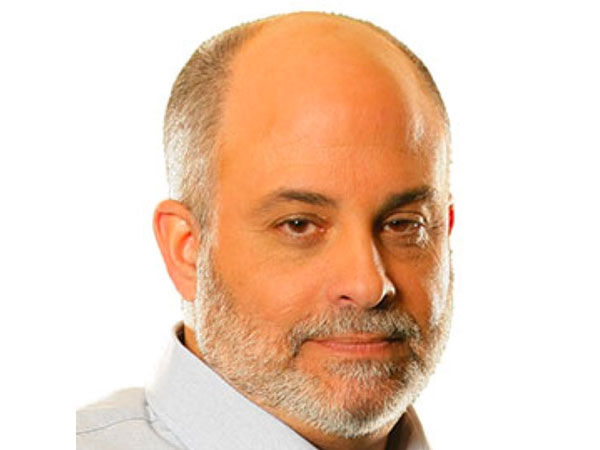Freedom of the press? Not according to DC appellate court
National News

Audio By Carbonatix
1:27 PM on Tuesday, October 7
(The Center Square) – First Amendment rights for journalists aren’t guaranteed, according to a recent appellate court ruling, with which U.S. Sen. Ted Cruz, R-Texas, and multiple news organizations disagree.
The Trump administration’s FBI, Departments of Defense, Homeland Security and Justice are listed as appellees in a First Amendment case, Yanping Chen v FBI, et al, in which a panel of three judges upheld a lower court ruling compelling a journalist to divulge the identity of her source.
The case relates to a Chinese national, Yanping Chen, who became a lawful permanent resident in 1993 and a citizen in 2001, and was investigated for espionage. Chen founded the University of Management and Technology in Rosslyn, Va., in 1998, providing taxpayer-funded Department of Defense tuition assistance for U.S. military students. In 2010, the Obama administration’s FBI launched an investigation; by 2012, FBI agents executed search warrants at the school and at Chen’s home.
The FBI suspected Chen was engaged in espionage for the Chinese Communist Party, using UMT as a cover to gain access to service members’ information to share with the CCP. Despite the FBI claiming it had enough evidence to indict Chen on espionage charges, by 2016, the U.S. Attorney’s Office for the Eastern District of Virginia chose not to press charges and the investigation died. Information about Chen was then leaked to Fox News reporter Catherine Herridge, who with her colleagues broke an exclusive story in 2017.
Under the Trump administration, the DOD halted UMT’s participation in its tuition assistance program and enrollment and funding dropped. By December 2018, Chen sued the FBI and other federal agencies citing the Privacy Act. She also demanded to learn the identity of Herridge’s source, filing subpoenas in 2022 demanding Herridge disclose it. Herridge and Fox News moved to quash the subpoenas, arguing the First Amendment provides privileges to reporters to protect their sources.
When Herridge was deposed in 2023, she refused to reveal her sources, citing national security concerns. The district court held her in contempt of court and imposed a daily fine of $800. The fine was stayed until the appellate court ruling. Herridge appealed the contempt order to the U.S. Court of Appeals for the District of Columbia Circuit, which upheld the lower court’s ruling on Sept. 30.
The appellate judges ruled, “The First Amendment itself does not entitle Herridge to disobey discovery obligations imposed on every other citizen in the circumstances of this case, we see little reason to create that entitlement as a matter of judge-made common law. For these reasons, we decline to recognize a federal common law newsgathering privilege.”
U.S. Sen. Ted Cruz, R-Texas, filed an amicus brief in support of Herridge, as did multiple news organizations, arguing the First Amendment affords Herridge, and all journalists, the constitutional right to protect their sources. He also notes that source information could have been obtained in a confidential grand jury setting to protect the source, Herridge and national security concerns. He also said Chen was engaging in lawfare as a “suspected spy.”
Chen “is a suspected spy and a known national security threat,” Cruz said. “Federal law places such profound emphasis on protecting national secrets and sources and methods of intelligence operations that agencies may even refuse to confirm or deny the existence of such information. The Supreme Court has said it is unequivocally not the role of judges to question what information should and should not be designated as sensitive to national security.”
“The government has ample opportunity to root out” the leak, Cruz said. “It could initiate a grand jury investigation and obtain that person’s identity in a confidential setting, or it could take any other number of routes to ensure that the security of national secrets remains intact.”
Instead, Chen “has engaged in lawfare – weaponizing the judicial system to attack civil liberties that should not be rewarded,” Cruz said. “She is seeking to extract taxpayer dollars from government agencies that were withheld not because of any journalism, but because of the requesting party’s own ties to the Chinese Communist Party and her suspected espionage against the United States.
“She has funneled information about US servicemembers and extracted knowledge from them regarding training, capabilities, and personnel of the armed services. She should not be permitted to overcome the First Amendment rights those servicemembers fought for in order to recover money she lost as a result of disloyalty as alleged in this case.”
Cryuz also maintains that the Founding Fathers believed “freedom of the press is one of the greatest bulwarks of liberty and can never be restrained but by despotic governments,” citing the Virginia Declaration of Rights. “That freedom is bolstered by the free flow of information to journalists and by their ability to gather information from confidential sources.”
The ruling is expected to be appealed as First Amendment concerns continue to be raised in media outlets nationwide.







